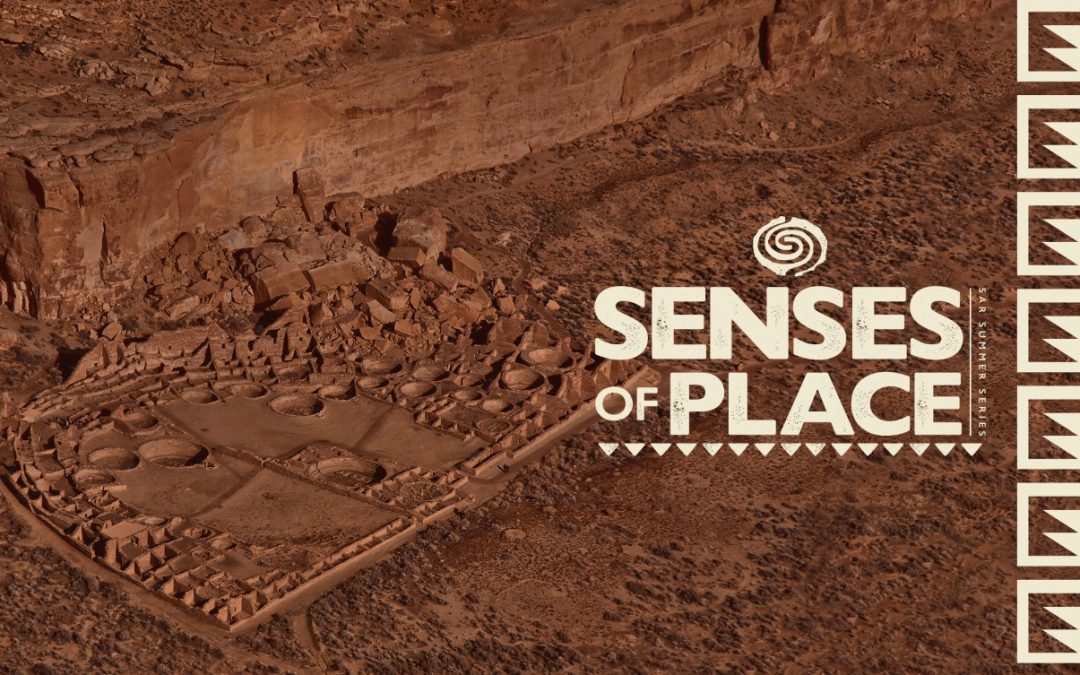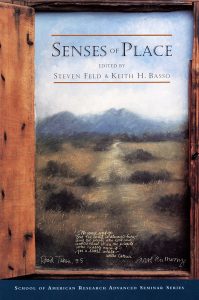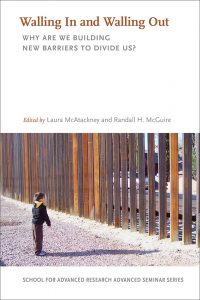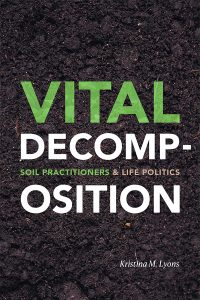In 1996 SAR Press published Senses of Place, an edited volume that originated as an SAR Advanced Seminar co-chaired by Steven Feld and Keith Basso, two anthropologists working at the forefront of their field. Feld studies the anthropology of sound and worked for many years in the Bosavi rain forest of Papua New Guinea, researching environmental sounds, bird calls, weeping, poetics, and song. Basso worked with the Western Apache people to understand how they use their landscape to generate, reflect upon, and share knowledge—and wisdom—with each other.
“Place is the most fundamental form of embodied experience,” argue Feld and Basso, “the site of a powerful fusion of self, space, and time.” And yet, wrote Basso, “place” and its profound effects on human life were rarely studied by cultural anthropologists. Feld, Basso, and their collaborators were among those who changed the conversation in anthropology, and this book was one of the first to show what we could learn from a study of place. Its importance is reflected by its status as our best-selling scholarly book.
To celebrate the twenty-fifth anniversary of its publication, SAR Press will host Steven Feld (distinguished professor of anthropology emeritus, University of New Mexico), Amahl Bishara (associate professor of anthropology, Tufts University), and Kristina Lyons (assistant professor of anthropology, University of Pennsylvania) for a virtual conversation about the book’s impact, as well as more recent developments in the field.
“Like anthropology more generally,” says Feld, “I have shifted in the last fifteen years from intensely rooted and bounded place experience, like in Papua New Guinea, to work with deeply rooted cosmopolitans in Ghana. The field of place studies has moved into globalized, diasporic, disbursed, and cosmopolitan placed identities.” The original chapters did not focus on refugees and displacement, cosmopolitanism, or feminist studies of science and environment, especially in relation to Indigenous place-making and transnational politics, all of which have changed anthropological thinking about place over the last twenty-five years. In collaboration with Bishara, who contributed a chapter on Palestinian resistance to Walling In and Walling Out (SAR Press, 2020), and Lyons, who recently published Vital Decomposition (Duke University Press, 2020), Feld hopes to explore these more recent developments and expand on the conversation that Senses of Place helped to start.
This event launches a series of discussions focused on place this summer at SAR. Panelists will discuss earthen architecture at several New World archaeological sites in the US Midwest and coastal Peru, Pueblo architecture at sites across the US Southwest, and more.
Lest we think that places matter only to people who lived long ago or somewhere else, Clifford Geertz in the afterword to Senses of Place reminds us that “no one lives in the world in general.” We are all of us always somewhere, whether we are at home, at work, or, as we have been over the last year, someplace in between. More than ever, adds Feld, “place is no less at the center of so many cultural conversations about what’s at stake for localities and research in the contemporary world.”
Join us online Thursday, June 3, at 2:00 p.m. (MDT) for the Senses of Place anniversary book talk.
Register now for the Senses of Place summer series!
SAR Press Book Talk: Celebrating Twenty-Five Years of Senses of Place
Places: Aesthetics and Meaning of Special Settings in the Andean Past and Present
Chaco: Crafted Space, Remembered Place
Showing our Strength: Resilience and Compassion in the Indigenous Southwest



